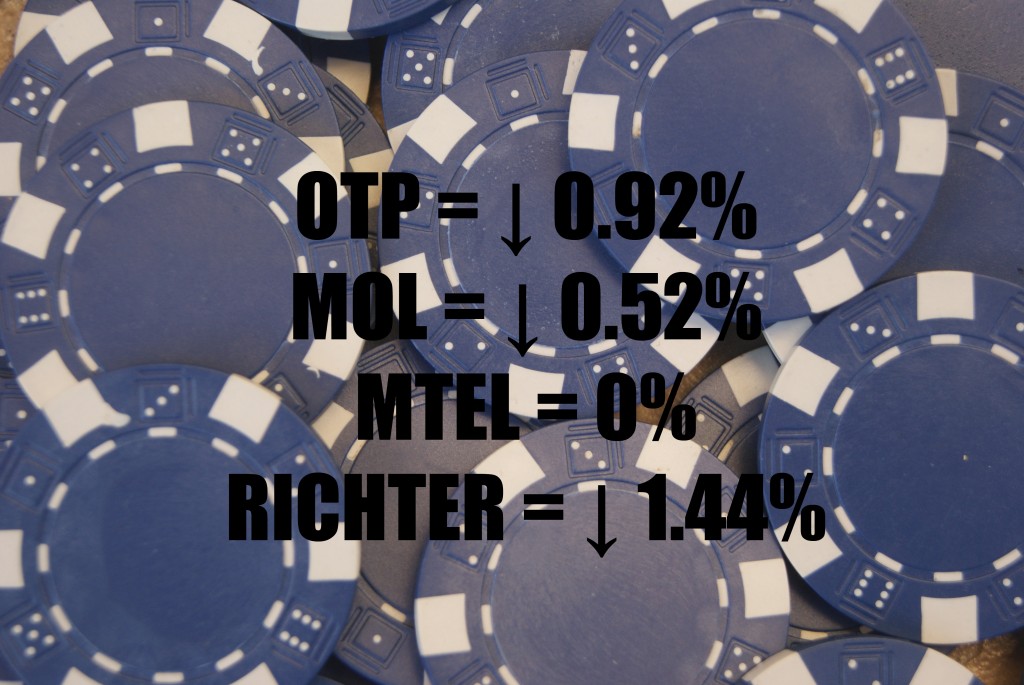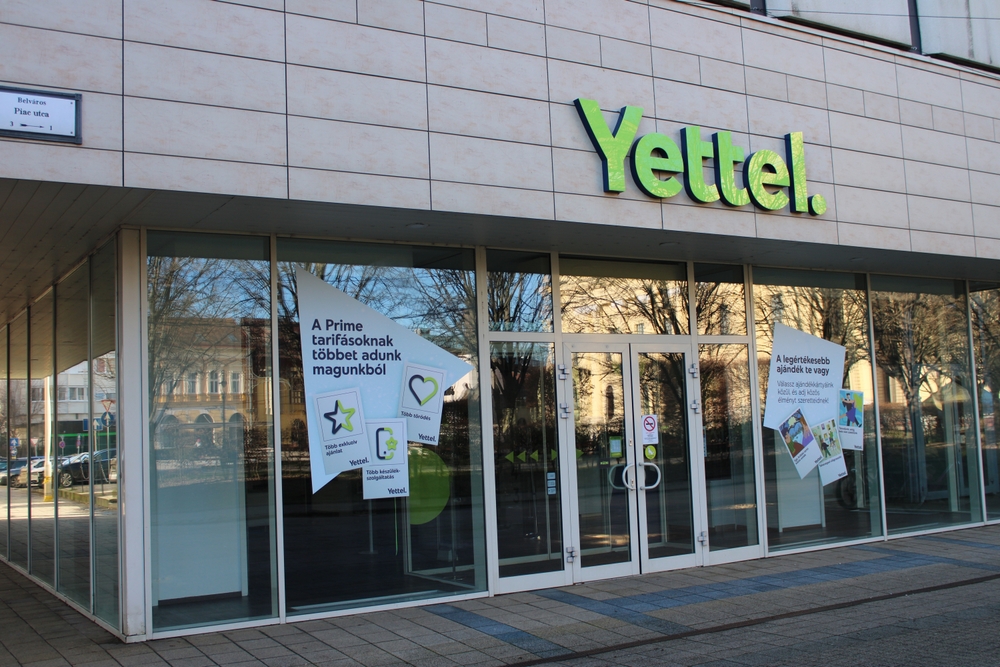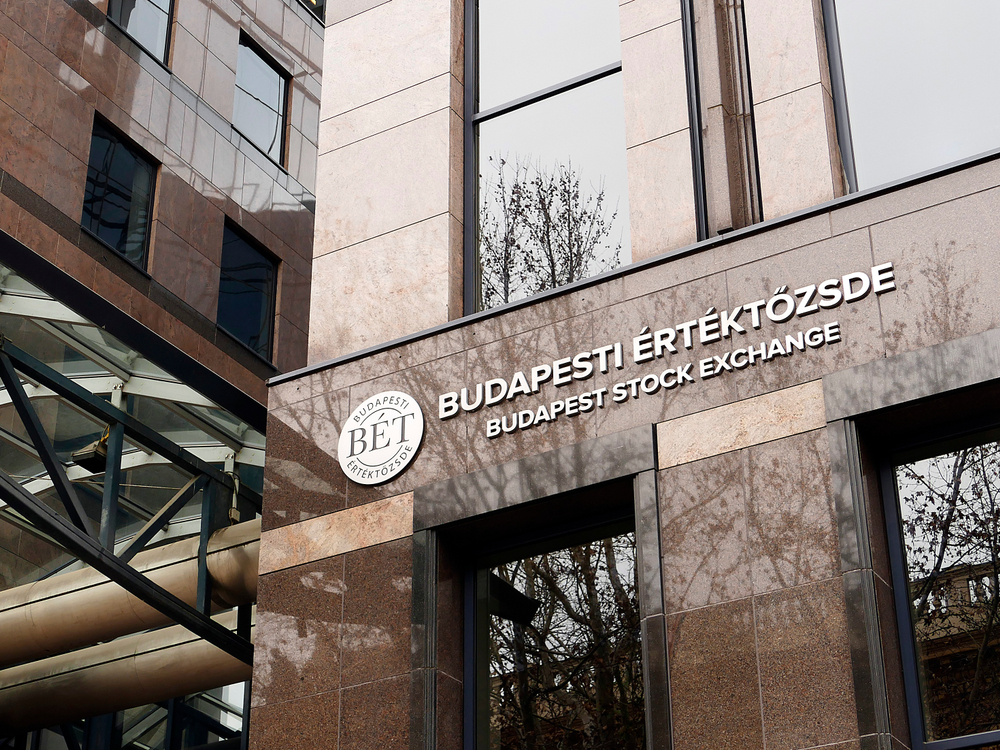BUX falls, but outperforms European peers

The Budapest Stock Exchangeʼs main BUX index finished down 0.82% at 22,529.13 Tuesday, after sinking 0.13% Monday. It is up 35.44% from year-end, after losing 10.40% last year. Taking its cue from a global market downturn, the Budapest parquet fell, but still outperformed most euro zone peers.
Ahead of unveiling in parliament next yearʼs budget bill on Wednesday, and first-quarter Hungarian GDP data due on Wednesday, too, investors also pondered whether Hungaryʼs economy was bursting with vigour or was producing the surprisingly strong writhes of someone in the process of falling asleep.
According to the median of forecasts compiled by business portal Portfolio, Hungary’s gross domestic product grew 3.5% on the year in the first quarter, after 3.4% in the last quarter of last year, and 3.6% over the whole of last year.
But the range of forecasts is unusually wide, from 2.8% to 4.2%.
Fresh industrial and construction output data out Tuesday, both showing accelerating annual growth in March, apparently vindicated optimists, but a continuing sharp fall of incoming business in construction attested to difficulties lying ahead.
"Manufacturing and exports outperformed expectations, the region and the rebound in euro zone demand. Larger production capacities and the lower euro-dollar exchange rate explain part of this outperformance. Retail sales provided a boost to growth for at least two months and a half, but it seems that Sunday closings are weighing on sales volumes. Public construction works have been slowing markedly compared to last year. Tight fiscal targets and (the governmentʼs) preference for acquiring private companies could crowd out investment in infrastructure for the remainder of this year. While the value added is difficult to quantify in private services (excluding trade), its growth rate in the first quarter could have been affected by taxation, bank losses associated with the forex mortgage loan conversion and recent losses at brokerage firms," a London-based analyst at UniCredit listed but a few of the elements of the puzzle.
Others also mentioned the base effect of larger automotive production capacities which ought to run out later, and an inevitable slowing of EU funds as downside risks in the near future.
Net profit of Magyar Telekom is seen falling 30% to HUF 3.4 bln in the first quarter from a year earlier. This reflects the recent purchase of new mobile frequency bandwidth by the company, analysts said. Still, EBITDA is projected to have increased 3.4% to HUF 41.9 bln as a result of rising revenues and cuts in non-investment expenditures. Revenue is seen 2.1% higher at HUF 155.1 bln, since the power-retailing business and rising mobile telecom revenues likely offset an expected drop in fixed-line operations. Magyar Telekom is due to announce first-quarter results on Tuesday after market close.
OTP lost 0.92% to HUF 5,905 on turnover of HUF 3.65 bln from a HUF 8.36 bln session total, a fifth short of the daily average this year.
MOL fell 0.52% to HUF 15,280 on turnover of HUF 1.92 bln.
Magyar Telekom ended flat at HUF 419 on turnover of HUF 687 mln.
Richter retreated 1.44% to HUF 4,445 on turnover of HUF 2.00 bln.
The bourseʼs mid-cap BUMIX went out also 0.82% lower 1,624.34.
Elsewhere in the region, WIG 20 in Warsaw was down 0.03%, while Pragueʼs PX shed 0.71%. Western Europeʼs major indices were all down ahead of their close Tuesday, FTSE100 in London 1.09%, DAX30 in Frankfurt 1.47%, and CAC40 in Paris 0.97%.
SUPPORT THE BUDAPEST BUSINESS JOURNAL
Producing journalism that is worthy of the name is a costly business. For 27 years, the publishers, editors and reporters of the Budapest Business Journal have striven to bring you business news that works, information that you can trust, that is factual, accurate and presented without fear or favor.
Newspaper organizations across the globe have struggled to find a business model that allows them to continue to excel, without compromising their ability to perform. Most recently, some have experimented with the idea of involving their most important stakeholders, their readers.
We would like to offer that same opportunity to our readers. We would like to invite you to help us deliver the quality business journalism you require. Hit our Support the BBJ button and you can choose the how much and how often you send us your contributions.








